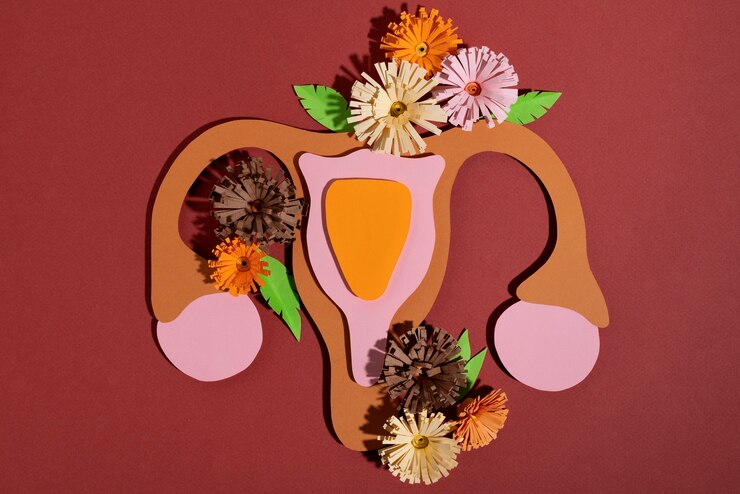Ayurvedic Solutions for Female Infertility Issues That Really Work

Table of Contents
Understanding Female Infertility: Causes and Factors

Female infertility is a complex issue that can be caused by a variety of factors. One of the most common causes is age, as a woman’s fertility naturally declines with age. Other factors include hormonal imbalances, disorders of the reproductive organs, and certain medical conditions such as polycystic ovary syndrome (PCOS) and endometriosis. Lifestyle factors can also contribute to infertility, such as smoking, excessive alcohol consumption, and obesity. Certain medications and treatments, such as chemotherapy and radiation therapy, can also affect a woman’s fertility.
In addition to these causes, there are also several risk factors that can increase a woman’s likelihood of experiencing fertility issues. These include a history of certain medical conditions, such as pelvic inflammatory disease (PID) or sexually transmitted infections (STIs), as well as a family history of infertility. It’s also important to note that certain lifestyle choices, such as high levels of stress and poor nutrition, can also increase the risk of infertility. Understanding the various causes and risk factors of female infertility is crucial in order to better diagnose and treat this condition.
The Role of Ayurveda in Treating Female Infertility

Ayurveda, the ancient Indian system of medicine, provides a holistic approach to treating female infertility. Ayurvedic treatments aim to address the root causes of infertility by rebalancing the body and promoting overall health and well-being.
One of the key aspects of Ayurveda is identifying and correcting any imbalances in the woman’s doshas, or energy forces. Imbalances in the doshas can affect reproductive health and fertility. Ayurvedic treatments, including herbal remedies, dietary changes, and lifestyle modifications, are tailored to individual needs and focus on bringing the doshas back into harmony.
In addition to addressing the physical aspects of infertility, Ayurveda also recognizes the importance of emotional and mental well-being. Stress, anxiety, and depression can all have a negative impact on fertility. Ayurvedic treatments include relaxation techniques, meditation, and counseling to help manage these emotional factors and create a more conducive environment for fertility.
By taking a comprehensive approach to female infertility, Ayurveda offers hope for women who are struggling to conceive. As with any medical condition, it is important to consult with a qualified Ayurvedic practitioner to develop a personalized treatment plan that suits your unique needs. With the right combination of Ayurvedic treatments, lifestyle changes, and emotional support, many women have found success in overcoming infertility and fulfilling their dreams of starting a family.
Balancing Hormones through Ayurvedic Approaches

The hormonal balance in a woman’s body plays a crucial role in fertility. When hormones are out of sync, it can disrupt the delicate dance of ovulation, leading to difficulties in conceiving. Ayurveda, the ancient Indian system of medicine, offers holistic approaches to restore hormonal balance naturally.
One of the key principles of Ayurveda is understanding each person’s unique constitution, or dosha. According to Ayurveda, there are three doshas – Vata, Pitta, and Kapha – and an imbalance in any of these can impact hormonal health. Ayurvedic practitioners analyze a woman’s dosha and prescribe personalized treatments to bring it back into equilibrium. These treatments may include dietary changes, herbal supplements, stress management techniques, and lifestyle modifications.
Ayurveda also emphasizes the importance of nurturing the reproductive system to encourage hormone balance. This involves detoxifying the body through practices such as Panchakarma, which removes accumulated toxins and rejuvenates the system. Additionally, Ayurveda recommends specific herbs and supplements that help nourish and support the reproductive organs, promoting hormonal harmony. By incorporating Ayurvedic approaches into daily life, women can take proactive steps towards balancing their hormones and improving their fertility.
Detoxifying the Reproductive System for Improved Fertility
Detoxifying the reproductive system can play a crucial role in improving fertility for women experiencing difficulties conceiving. The reproductive organs can accumulate toxins over time from factors such as environmental pollutants, poor diet, stress, and hormonal imbalances. These toxins can disrupt the delicate hormonal balance required for proper reproductive function. By detoxifying the reproductive system, we can help remove these harmful substances and promote a healthier environment for conception.
There are various ways to detoxify the reproductive system, and Ayurveda offers several effective approaches. One such approach is through the use of specific herbs and supplements that support detoxification. For example, herbs like Shatavari, Ashwagandha, and Triphala have been traditionally used in Ayurveda to cleanse and rejuvenate the reproductive system. These herbs can help eliminate toxins, reduce inflammation, and balance hormones. Additionally, Ayurvedic formulations like Chyawanprash and Aloe vera gel can also provide nourishment and support detoxification.
Furthermore, Ayurveda emphasizes the importance of adopting a healthy lifestyle to support reproductive health. This includes practices such as regular exercise, proper sleep, stress management techniques, and a balanced diet. Through these lifestyle modifications, we can enhance the body’s natural detoxification processes and promote optimal reproductive function.
In conclusion, detoxifying the reproductive system can significantly improve fertility outcomes for women. Ayurvedic approaches offer comprehensive solutions that address the underlying causes of infertility by supporting detoxification, balancing hormones, and promoting overall reproductive health. By incorporating these strategies into one’s routine, women can optimize their chances of conceiving and achieving a healthy pregnancy.
This table summarizes the approach to detoxifying the reproductive system for improved fertility in women:
| Aspect | Description |
|---|---|
| Understanding Female Reproductive Health | Ayurveda views female reproductive health as influenced by the balance of doshas (Vata, Pitta, Kapha), dhatus (tissues), and srotas (channels) in the body. Imbalances in these factors can affect menstrual health, ovulation, and fertility. |
| Diagnosis through Ayurveda | Ayurvedic practitioners diagnose reproductive health issues in women by evaluating overall health, menstrual cycle regularity, hormonal imbalances, and specific symptoms such as irregular periods, menstrual pain, or difficulty conceiving. Pulse diagnosis (Nadi Pariksha) and tongue examination (Jihva Pariksha) may also be used to assess imbalances. |
| Dietary and Lifestyle Changes | Ayurvedic treatment for female infertility focuses on dietary and lifestyle modifications to balance the doshas and promote reproductive health. Recommendations may include a nourishing diet, stress management techniques, adequate sleep, and gentle exercise suitable for the individual’s constitution and reproductive needs. |
| Herbal Remedies and Supplements | Ayurvedic herbs and supplements are commonly used to support female fertility and detoxify the reproductive system. Herbs such as Shatavari, Ashoka, Lodhra, Guduchi, and Triphala are believed to regulate hormones, support ovulation, cleanse the uterus, and improve overall reproductive function. |
| Panchakarma Therapy | Panchakarma, a purification therapy in Ayurveda, may be recommended to detoxify the reproductive system and restore balance. Procedures such as Vamana (emesis), Virechana (purgation), Basti (enema), and Uttar Basti (uterine administration) aim to remove toxins, regulate menstrual cycles, and promote reproductive health. |
| Yoga and Meditation | Ayurveda advocates the practice of yoga and meditation to support female fertility and reproductive health. Specific yoga asanas (postures), pranayama (breathing exercises), and meditation techniques can help reduce stress, balance hormones, improve blood flow to the reproductive organs, and enhance overall well-being. |
| Ayurvedic Counseling | Ayurvedic practitioners offer personalized counseling and guidance to women seeking to improve fertility. This may include education about Ayurvedic principles, lifestyle modifications, dietary recommendations, herbal remedies, and supportive therapies to address physical, emotional, and mental aspects of fertility. |
| Holistic Approach | Ayurveda adopts a holistic approach to female fertility, addressing not only physical symptoms but also emotional, mental, and spiritual aspects of health. By restoring balance and harmony in the body and mind, Ayurvedic treatments aim to optimize fertility and support overall well-being. |
Nourishing the Reproductive Organs with Ayurvedic Herbs and Supplements
The reproductive organs play a crucial role in the fertility of a woman. Nourishing these organs is essential to improve fertility and increase the chances of conception. Ayurveda, the ancient Indian system of medicine, offers a wealth of herbs and supplements that can effectively nourish the reproductive organs and enhance fertility.
One such herb is Ashwagandha, which is known for its adaptogenic properties. It helps to balance hormones, reduce stress, and improve overall reproductive health. A study published in the Journal of Alternative and Complementary Medicine showed that women who took Ashwagandha had improved follicular function and increased chances of successful conception. Additionally, Shatavari, another powerful Ayurvedic herb, nourishes and strengthens the reproductive organs. It has been found to regulate hormonal imbalances and promote healthy ovulation. A study published in the Journal of Ethnopharmacology found that Shatavari had positive effects on fertility and improved the quality of reproductive tissues. Incorporating these herbs into your daily routine can provide significant benefits in nourishing the reproductive organs and optimizing fertility.
In addition to herbs, Ayurvedic supplements can also play a vital role in nourishing the reproductive organs. One such supplement is Chyawanprash, a traditional Ayurvedic formulation made from a blend of herbs and natural ingredients. It is known for its rejuvenating properties and can help improve the overall health of the reproductive system. A study published in the Journal of Ayurveda and Integrative Medicine showed that Chyawanprash had positive effects on reproductive parameters in both men and women. Another supplement, Triphala, can also be beneficial in nourishing the reproductive organs. It is a combination of three fruits that are known for their antioxidant properties. Clinical trials have demonstrated its ability to improve menstrual function and hormonal balance.
Nourishing the reproductive organs with Ayurvedic herbs and supplements can be a natural and effective way to improve fertility. However, it is important to consult with a qualified Ayurvedic practitioner or healthcare provider before incorporating any new herbs or supplements into your routine. They can help tailor a treatment plan that is specific to your individual needs and ensure optimal results. Remember, nourishing the reproductive organs is a journey that requires patience and consistency, but the rewards of improved fertility are well worth it.
Ayurvedic Lifestyle Practices for Enhancing Fertility
Maintaining a healthy lifestyle is essential for enhancing fertility in women. Ayurveda, the ancient Indian system of medicine, offers various lifestyle practices that can optimize reproductive health and increase the chances of conception. One important aspect is maintaining a balanced daily routine or dinacharya. According to Ayurveda, following a consistent daily schedule helps regulate the body’s natural rhythms and promotes overall well-being. This includes waking up early in the morning, practicing gentle exercises or yoga, and ensuring regular mealtimes.
In addition to a balanced daily routine, Ayurveda emphasizes the importance of a nourishing diet for enhancing fertility. Including fertility-boosting foods such as fresh fruits and vegetables, whole grains, lean proteins, and healthy fats can not only provide essential nutrients but also support hormonal balance. Ayurveda also suggests avoiding processed foods, excessive caffeine, and alcohol as they can have negative effects on fertility. It is recommended to consult with an Ayurvedic practitioner or nutritionist to create an individualized diet plan tailored to your specific needs and body type. By incorporating these lifestyle practices, women can create an optimal environment for conception and enhance their chances of achieving a healthy pregnancy.
• Maintaining a balanced daily routine or dinacharya is essential for enhancing fertility.
• Waking up early in the morning and practicing gentle exercises or yoga can help regulate the body’s natural rhythms.
• Ensuring regular mealtimes and including fertility-boosting foods such as fresh fruits, vegetables, whole grains, lean proteins, and healthy fats can support hormonal balance.
• Avoiding processed foods, excessive caffeine, and alcohol is recommended as they can have negative effects on fertility.
• Consulting with an Ayurvedic practitioner or nutritionist to create an individualized diet plan tailored to specific needs and body type is advised.
Managing Stress and Emotional Well-being in relation to Infertility
Stress and emotional well-being play a significant role in the overall health of individuals, particularly when it comes to fertility issues. The journey of infertility can be emotionally draining for couples, causing feelings of anxiety, sadness, and even depression. It is crucial to acknowledge and address these emotions to maintain a healthy state of mind throughout the process.
One effective method of managing stress and emotional well-being in relation to infertility is through counseling and support groups. Seeking counseling from a qualified therapist or joining a support group specifically designed for individuals experiencing infertility can provide a safe space to express emotions, share experiences, and gain support from others going through similar challenges. Research has shown that counseling and support groups can help reduce stress and improve overall mental well-being, ultimately enhancing the chances of conceiving.
Additionally, incorporating stress-reducing techniques into one’s daily routine can be highly beneficial. Activities such as meditation, deep breathing exercises, and yoga have been proven to promote relaxation and reduce stress levels. Engaging in regular physical exercise, getting enough sleep, and practicing self-care activities can also contribute to improved emotional well-being. It is important to prioritize self-care and find healthy outlets for managing stress during this challenging time. By proactively addressing stress and emotional well-being, individuals can optimize their overall fertility journey and improve their chances of successful conception.
Ayurvedic Dietary Recommendations for Boosting Fertility
The dietary choices we make can have a significant impact on our overall health, including fertility. In Ayurveda, there are specific dietary recommendations that can help boost fertility in women. These recommendations focus on nourishing the reproductive organs and balancing the hormones.
One important aspect of Ayurvedic dietary recommendations for boosting fertility is to consume foods that are considered sattvic. Sattvic foods are known to promote clarity, harmony, and balance within the body. Examples of sattvic foods include fresh fruits and vegetables, whole grains, legumes, nuts, and seeds. These foods are rich in vitamins, minerals, and antioxidants, which are essential for reproductive health.
In addition to consuming sattvic foods, it is also important to follow a balanced diet that includes all the essential nutrients. This includes ensuring an adequate intake of proteins, healthy fats, and carbohydrates. Protein-rich foods, such as lean meats, fish, eggs, and plant-based sources like lentils, help in the production of hormones and support the growth of healthy eggs. Healthy fats, such as those found in avocados, nuts, and olive oil, are crucial for hormone production and absorption. And carbohydrates provide the necessary energy for reproductive functions.
Moreover, incorporating specific Ayurvedic herbs and spices into the diet can further enhance fertility. For example, Shatavari, also known as the “queen of herbs,” is highly recommended for women who are trying to conceive. It is believed to support the health of the female reproductive system and balance hormonal levels. Another herb, Ashwagandha, has adaptogenic properties that help the body better cope with stress, which can have a positive impact on hormonal balance and fertility.
It’s important to note that dietary recommendations for boosting fertility may vary based on an individual’s constitution or dosha. Ayurveda recognizes three main doshas- Vata, Pitta, and Kapha- and each dosha requires a slightly different approach when it comes to diet and lifestyle. Consulting with an Ayurvedic practitioner can provide personalized recommendations and help address any specific concerns related to fertility.
Incorporating these Ayurvedic dietary recommendations into your daily routine can have a positive impact on your fertility journey. However, it is important to remember that nutrition is just one aspect of overall reproductive health. It is recommended to combine a healthy diet with regular exercise, stress management techniques, and any other necessary medical or holistic interventions to optimize fertility.
Ayurvedic Yoga and Exercise for Improving Fertility
Yoga and exercise are valuable tools for improving fertility in women, and Ayurveda provides specific practices tailored to enhance reproductive health. Regular yoga practice can help balance hormones, reduce stress, and improve blood circulation to the reproductive organs. Specific yoga poses, such as the Supported Bridge Pose, Legs Up the Wall Pose, and Butterfly Pose, can stretch and strengthen the pelvic region, stimulate the ovaries, and promote healthy blood flow to the uterus.
Exercise, when done in moderation, can also have positive effects on fertility. Engaging in aerobic activities like brisk walking or swimming can help maintain a healthy weight, improve cardiovascular health, and enhance overall well-being. It is crucial, however, to avoid excessive exercise, as intense workouts can disrupt the menstrual cycle and interfere with ovulation. Balancing physical activity with rest and relaxation is essential for optimizing fertility outcomes.
Remember, it is always recommended to consult with a qualified Ayurvedic practitioner or yoga instructor before starting any new exercise or yoga routine, especially if you are actively trying to conceive. They can provide personalized guidance and design an appropriate program based on your specific needs and constitution.
Ayurvedic Techniques for Natural Conception and Fertility Enhancement
Natural conception and fertility enhancement are important aspects that many couples struggling with infertility seek to explore. Ayurvedic techniques offer a holistic approach to improving fertility by addressing the physical, emotional, and spiritual well-being of individuals.
One of the key Ayurvedic techniques for enhancing conception and fertility is through the practice of abhyanga, which involves the application of warm herbal oils to the body. Abhyanga not only promotes relaxation and stress reduction but also helps to balance the doshas, or the energy forces within the body. By improving circulation and detoxifying the body, abhyanga supports the reproductive organs and enhances their functioning.
In addition to abhyanga, Ayurveda emphasizes the importance of a healthy diet in improving fertility. Ayurvedic principles suggest incorporating foods that are nourishing to the reproductive system, such as ghee, almonds, sesame seeds, and certain fruits and vegetables. These foods are believed to strengthen the reproductive tissues, balance hormones, and promote optimal reproductive health. Consulting with an Ayurvedic practitioner can provide tailored dietary recommendations based on an individual’s specific constitution and needs.
Supporting Assisted Reproductive Technologies (ART) with Ayurveda
Assisted Reproductive Technologies (ART), such as in vitro fertilization (IVF), have become increasingly popular in recent years for couples struggling with infertility. While these medical interventions can offer hope and increase the chances of conception, they can also be physically and emotionally demanding. This is where Ayurveda, the ancient Indian system of medicine, can play a valuable role in supporting individuals undergoing ART procedures.
Ayurveda recognizes the importance of preparing the body and mind for conception. Through a holistic approach, Ayurvedic principles and practices can enhance the success rates of ART by addressing the root causes of infertility and optimizing overall health. Ayurvedic therapies such as Panchakarma, a detoxification and rejuvenation process, can help eliminate toxins and balance the doshas, thus creating an environment conducive to successful conception. Additionally, Ayurvedic herbs and supplements, such as Ashwagandha, Shatavari, and Gokshura, have been found to improve reproductive health, regulate hormone levels, and increase the quality of eggs and sperm, all of which are crucial for successful ART outcomes.
By combining the benefits of modern reproductive technologies with Ayurvedic approaches, individuals undergoing ART can potentially improve their chances of achieving a healthy pregnancy. It is important, however, to consult with a qualified and experienced Ayurvedic practitioner who can tailor the treatment plan according to specific needs and medical conditions. The integration of Ayurveda with ART can offer a comprehensive and holistic approach to fertility enhancement, ensuring not only the physical well-being but also the emotional and mental support needed during this challenging journey.
Ayurvedic Remedies for Common Gynecological Disorders Affecting Fertility
Endometriosis, polycystic ovary syndrome (PCOS), and fibroids are common gynecological disorders that can significantly affect a woman’s fertility. Thankfully, Ayurveda offers a range of remedies to address these conditions and improve the chances of conception.
For women suffering from endometriosis, Ayurvedic treatments focus on reducing inflammation and balancing hormones. This may include the use of herbs such as turmeric and ashwagandha, which have anti-inflammatory properties. Additionally, Ayurvedic practitioners may recommend specific dietary changes to reduce inflammation, such as avoiding processed foods and increasing the consumption of fruits and vegetables.
In the case of PCOS, Ayurvedic remedies aim to regulate hormonal imbalances and improve insulin sensitivity. This may involve the use of herbs like shatavari and fenugreek, which have been shown to have positive effects on hormone levels. Furthermore, Ayurvedic dietary recommendations often include foods that are low-glycemic and high in fiber, which can help in managing PCOS symptoms.
Fibroids, on the other hand, are benign tumors that develop in the uterus. Ayurveda considers fibroids to be a result of excess heat and poor circulation. To address this condition, Ayurvedic remedies focus on improving blood circulation and reducing inflammation. This may involve the use of herbs like guggul and lodhra, which have been traditionally used to treat fibroids. Additionally, Ayurvedic dietary recommendations may include foods that have cooling properties, such as cucumber and coconut water.
While Ayurvedic remedies can be effective in addressing these gynecological disorders, it is important to consult with a qualified Ayurvedic practitioner who can provide personalized treatment plans based on individual needs. It is also crucial to work alongside conventional medical treatments, as Ayurveda should not be used as a replacement for necessary medical interventions. By combining the best of Ayurveda and modern medicine, women can take a holistic approach to improving fertility and overcoming common gynecological disorders.
Addressing Male Infertility Issues with Ayurvedic Approaches
Male infertility is a complex issue that affects a significant number of couples worldwide. While medical advancements have provided various treatments, Ayurveda offers a holistic approach to address male infertility issues. Ayurvedic approaches focus on identifying the root causes of infertility and promoting overall health and vitality in men.
One common cause of male infertility is low sperm count. Ayurvedic principles emphasize the significance of a balanced diet and lifestyle in improving sperm count. Certain foods like nuts, seeds, and fruits that are rich in antioxidants, vitamins, and minerals can help enhance sperm production. Additionally, Ayurveda recommends avoiding unhealthy lifestyle habits such as smoking, excessive alcohol consumption, and stress, as they can negatively impact sperm health. Incorporating Ayurvedic herbs and supplements like ashwagandha, shilajit, and gokshura can also aid in improving sperm count and motility.
Another critical factor in male infertility is the quality and motility of sperm. Ayurvedic treatments focus on improving the overall health of the reproductive system through detoxification and nourishment. Panchakarma, a traditional Ayurvedic therapy, involves various cleansing procedures that eliminate toxins from the body, promoting better sperm quality. Additionally, Ayurvedic herbs like safed musli, shatavari, and kapikacchu are known to enhance the quality and motility of sperm. Implementing these Ayurvedic approaches, alongside a healthy lifestyle, can significantly contribute to addressing male infertility issues.
Please note that the information provided above is for informational purposes only and should not substitute professional medical advice. It is important to consult a qualified Ayurvedic practitioner or healthcare provider before starting any treatment.
Success Stories: Real-life Experiences of Ayurvedic Solutions for Female Infertility
Over the years, numerous women have encountered difficulties when trying to conceive a child. While some have found success with conventional medical treatments, others have sought alternative solutions such as Ayurveda. Ayurvedic medicine, an ancient holistic healing system originating from India, focuses on addressing the root causes of health issues rather than simply treating symptoms. By adopting a personalized approach and utilizing natural remedies, Ayurveda aims to restore balance and enhance overall well-being. This article will explore a collection of success stories from women who have found hope and renewed fertility through Ayurvedic solutions for female infertility.
One such success story involves a 34-year-old woman who had been struggling with infertility for several years. After multiple failed attempts with traditional medical interventions, she turned to Ayurveda as a last resort. Under the guidance of an experienced Ayurvedic practitioner, she underwent a thorough evaluation of her physical, mental, and emotional health. Based on her unique constitution and specific infertility causes, a personalized treatment plan was developed, which included a combination of herbal supplements, dietary adjustments, and lifestyle modifications. Within a few months, her menstrual cycle became more regular, and she noticed a significant reduction in the severity of PMS symptoms. After one year of consistent Ayurvedic treatment, she was overjoyed to discover she was finally pregnant. This success story serves as an inspiring testament to the potential efficacy of Ayurvedic solutions in addressing female infertility.
What are the common causes of female infertility?
Female infertility can be caused by various factors such as hormonal imbalances, ovulation disorders, blocked fallopian tubes, uterine abnormalities, age-related decline in fertility, and certain medical conditions like polycystic ovary syndrome (PCOS) and endometriosis.
How can Ayurveda help in treating female infertility?
Ayurveda offers holistic approaches to address the root causes of female infertility. It focuses on balancing hormones, detoxifying the reproductive system, nourishing the reproductive organs, and adopting a healthy lifestyle to enhance fertility.
How does Ayurveda balance hormones to improve fertility?
Ayurveda uses herbs, supplements, and lifestyle practices to regulate hormonal imbalances. It emphasizes the importance of maintaining a balanced diet, managing stress, and adopting specific yoga and exercise routines to promote hormonal equilibrium.
Can Ayurveda detoxify the reproductive system and improve fertility?
Yes, Ayurveda suggests various detoxification techniques like Panchakarma therapy, which helps remove toxins from the body and restore the balance of reproductive energies. This detoxification process can enhance fertility by improving the overall health of the reproductive system.
Which Ayurvedic herbs and supplements are recommended for improving fertility?
Ayurveda prescribes specific herbs and supplements like Ashwagandha, Shatavari, and Gokshura to nourish the reproductive organs and enhance fertility. These natural remedies are known for their rejuvenating properties and their ability to support reproductive health.
What Ayurvedic lifestyle practices can enhance fertility?
Ayurveda recommends following a healthy daily routine (dinacharya), including practices like oil massage (abhyanga), meditation, and adequate sleep. It also encourages maintaining a positive mindset and avoiding excessive physical or mental stress.
How does Ayurveda address stress and emotional well-being in relation to infertility?
Ayurveda acknowledges the impact of stress on fertility and offers techniques like meditation, breathing exercises, and Ayurvedic herbs to manage stress. It also emphasizes the importance of emotional well-being and encourages a positive mindset during the fertility journey.
Are there any dietary recommendations in Ayurveda to boost fertility?
Yes, Ayurveda suggests a fertility-enhancing diet that includes nourishing foods like fresh fruits and vegetables, whole grains, healthy fats, and adequate protein. It also recommends avoiding processed foods, excessive caffeine, and alcohol, which can negatively impact fertility.
How can Ayurvedic yoga and exercise improve fertility?
Ayurvedic yoga and exercise routines like fertility yoga and specific pelvic floor exercises can improve blood circulation to the reproductive organs, reduce stress, and balance hormones. These practices can enhance fertility by promoting overall reproductive health.
Can Ayurveda help with natural conception and fertility enhancement?
Yes, Ayurveda offers techniques like Ayurvedic massage, herbal remedies, and lifestyle practices to optimize the chances of natural conception. It focuses on creating a healthy reproductive environment and improving overall fertility.
Is Ayurveda supportive of assisted reproductive technologies (ART)?
Yes, Ayurveda can complement and support assisted reproductive technologies (ART) like in vitro fertilization (IVF) by addressing the underlying causes of infertility and preparing the body for the procedures. It helps improve the success rates of ART by enhancing overall reproductive health.
Does Ayurveda provide remedies for common gynecological disorders affecting fertility?
Yes, Ayurveda offers remedies for common gynecological disorders like PCOS and endometriosis, which can significantly impact fertility. It uses a combination of herbs, supplements, diet modifications, and lifestyle practices to manage these conditions and improve fertility.
Can Ayurveda address male infertility issues as well?
Yes, Ayurveda recognizes the importance of male reproductive health and offers approaches to address male infertility issues. It includes herbs, supplements, dietary recommendations, and lifestyle practices to improve sperm health, hormonal balance, and overall reproductive function.
Are there any real-life success stories of Ayurvedic solutions for female infertility?
Yes, Ayurveda has helped many individuals overcome female infertility through its holistic approaches. Real-life experiences and success stories showcase the effectiveness of Ayurvedic solutions in improving fertility and achieving pregnancy.




